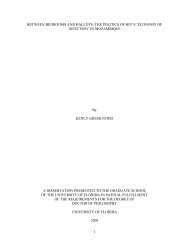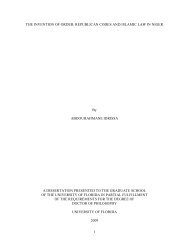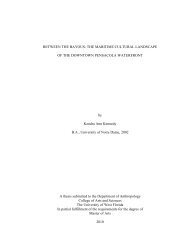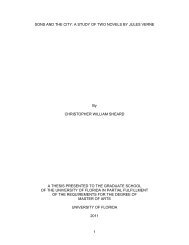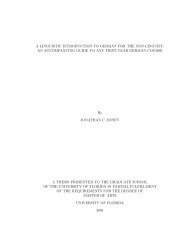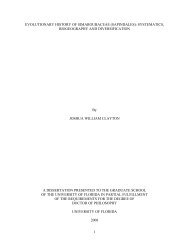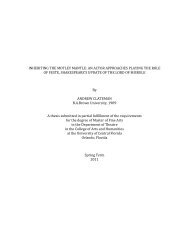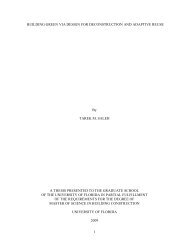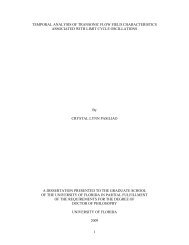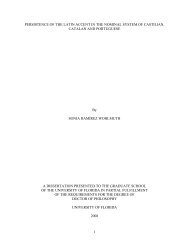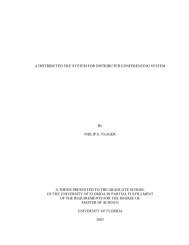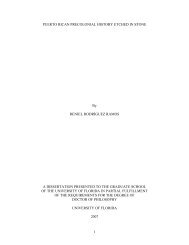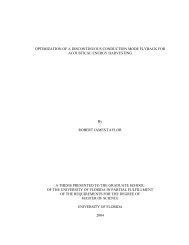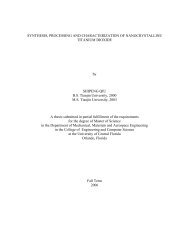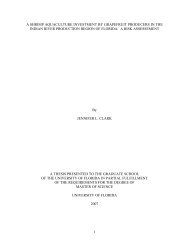t b a b a
t b a b a
t b a b a
You also want an ePaper? Increase the reach of your titles
YUMPU automatically turns print PDFs into web optimized ePapers that Google loves.
2. Partial Quantum Search: Partial Quantum Search considers the search problem<br />
where given a quantum database f : {0, 1} n → {0, 1} such that f(x) = 1 for a unique<br />
x ∈ {0, 1} n , we are required to determine only the first k bits of the address x. The<br />
quantum algorithms and low bound can be found in [GR05, KG06].<br />
3. Quantum Counting: To determine the number of solutions, M, to an N item search<br />
problem, it takes O(N) consultations on a classical computer. On a quantum computer<br />
it is possible to estimate the number of solutions much more quickly by combining the<br />
Grover’s algorithm with the phase estimation based on quantum Fourier transform.<br />
[BHT98]<br />
4. Quantum Walk: Quantum random walks on graphs have been shown to display<br />
many interesting properties, including exponentially fast hitting times when compared<br />
with their classical counterparts [AAK01,Kem03]. It also provides an intuitive frame-<br />
work on which to build novel quantum algorithms which run faster than their classical<br />
counterparts. It can be divided into two models: discrete time quantum random walk<br />
and continuous-time quantum random walk. Many applications such as search algo-<br />
rithm [SKW03], element distinctness [Amb07] are developed upon quantum walk.<br />
43



